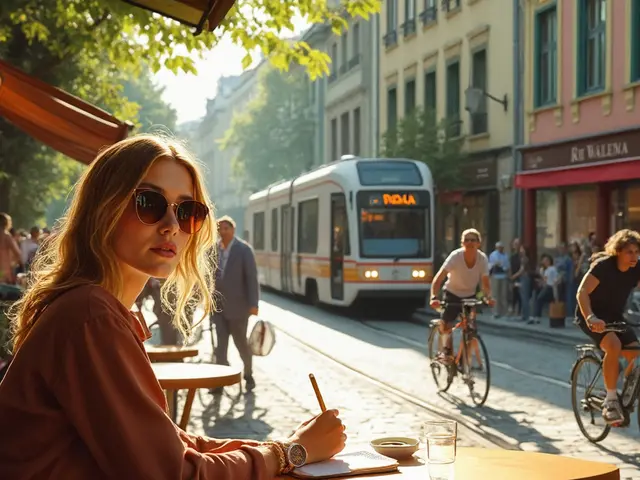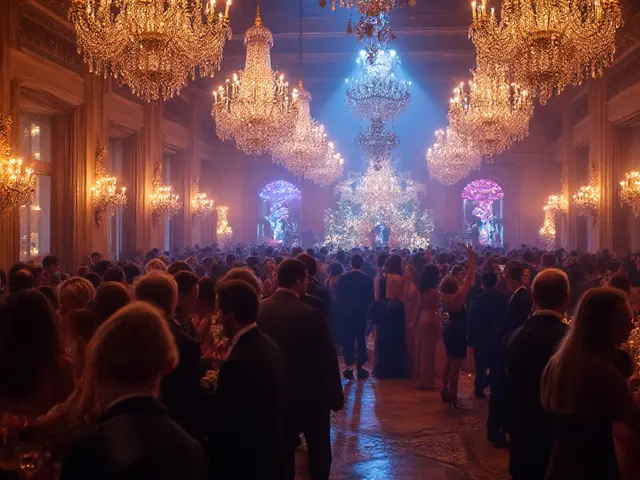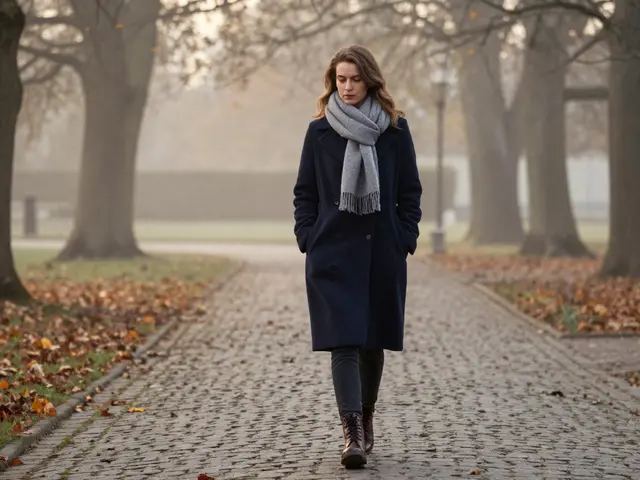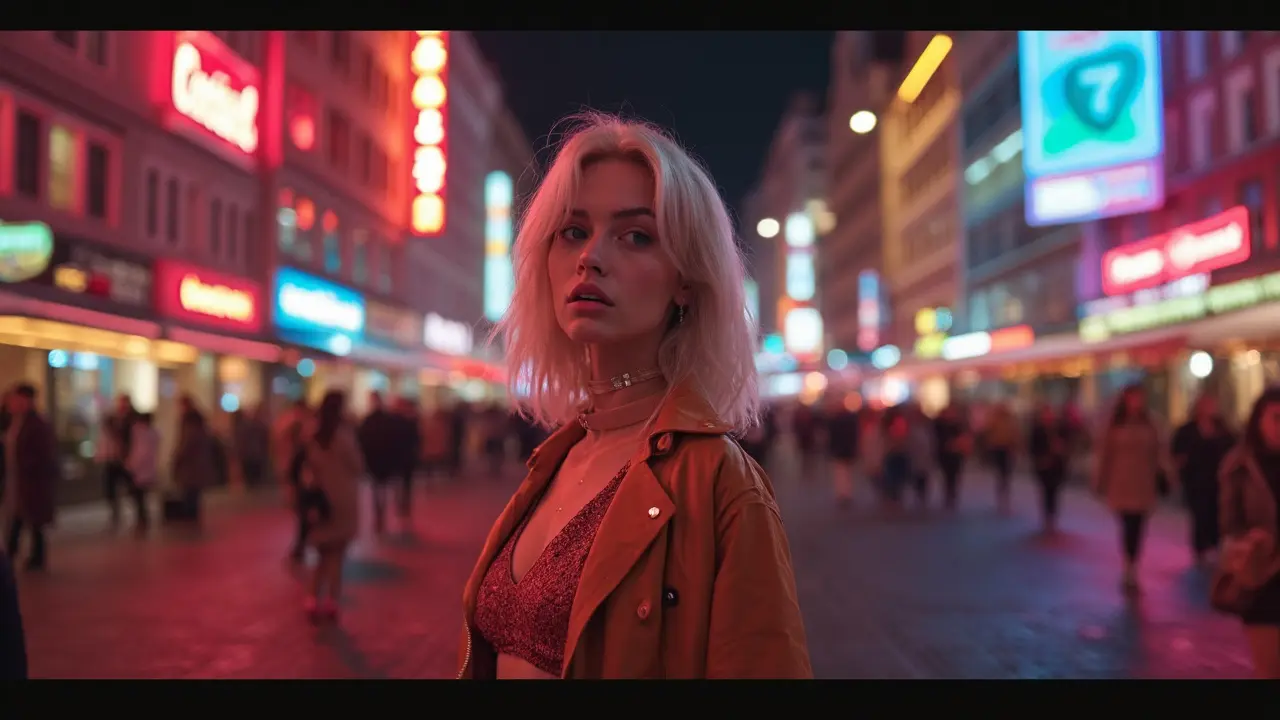
Try to picture Munich, and you might instantly think Oktoberfest or massive beer gardens. But if that’s all you imagine, you’re missing a huge part of what makes the city tick. There’s a wild energy under the shiny surface—a nightlife that draws in everybody from students to celebrities. This isn’t the kind of city where fading stars go to disappear. Munich actually knows how to put people in the spotlight and keep them there, if they’ve got that spark.
So, why does Leonie Saint’s name still grab people’s attention when so many fade into the background? It comes down to timing, personality, and guts. She stood out in a city that already glows, and there’s a lesson in that for anyone hoping to make their mark. Whether you’re curious about her story, looking for a few tips to enjoy Munich like a pro, or just love fun facts that surprise your friends, there’s something here for you. Ready to look past the obvious and see what really sets Munich—and Leonie—apart?
- Munich’s Nightlife: More Than Just Beer Halls
- How Leonie Saint Rose to Fame
- Why Munich and Leonie Are a Good Match
- The Lasting Impact on Pop Culture
- Practical Tips: Exploring Munich Like a Local
- Quick Facts and Trivia About Leonie Saint
Munich’s Nightlife: More Than Just Beer Halls
It’s a mistake to think Munich’s nightlife is just giant steins of beer and oompah bands. Don’t get me wrong, the classic beer halls like Hofbräuhaus are a blast, and you should totally try the local Helles lager at least once. But Munich’s party scene goes way beyond the tourist cliches. There’s something for nearly every taste, whether you want to dance until sunrise or chill with cocktails in a stylish lounge.
Here’s what people love about going out in Munich:
- Nightclubs that never really sleep—Blitz Club on Museum Island packs in DJs from all over Europe, and Harry Klein sets the standard for electronic music.
- Hidden speakeasies—Zephyr Bar makes some of the city’s most creative drinks, and most folks walk right by without knowing it’s there.
- Live music everywhere—Small clubs like Muffatwerk and Backstage draw big crowds for local and international acts, plus you’ll find jazz bars tucked away around every corner.
- Underground raves—During spring and summer, there are secret parties in old factories and even forests on the edge of town. Ask a local—they’ll know where to go or who to ask.
The crowds are diverse too. Students from LMU (that’s the big local university), tech workers, and artists all mix in the same places. If you want to meet new people, there’s no shortage of options.
Here are a few quick facts that show Munich isn’t sleeping on its nightlife game:
| Stat | Number |
|---|---|
| Nightclubs in Munich | 120+ |
| Live Music Venues | 80+ |
| Beer Halls & Gardens | Over 200 |
| Annual Visitors for Nightlife | 2.1 million |
The famous Leonie Saint herself once said in an old interview that Munich “knows how to party without losing its charm.” That’s the vibe you notice right away—this isn’t about excess, it’s about enjoying the night and whoever you’re with. The city stays both traditional and edgy, which is rare. So don’t just stick to beer halls; hit up a club, wander into a late-night jazz set, or let someone take you to a secret rave. That’s the real Munich after dark.
How Leonie Saint Rose to Fame
Leonie Saint didn’t just stroll into the adult entertainment world—she burst onto the scene in 2005 and made heads turn fast. At just 19 years old, she decided to go for it, landing her first roles in German adult films. Thanks to her natural charisma and an open attitude, she became a fan favorite right away. Her style was easy-going and honest, which stood out in an industry crowded with people chasing trends.
Within her first year, Leonie picked up big buzz. In 2006, she nabbed Germany’s Venus Award for Best Newcomer, which is a huge deal in European adult film. That award wasn’t just for show. It brought her real attention, bumped her bookings, and scored her spots on TV talk shows. She wasn’t shy about her work or her opinions, and German pop culture started to notice her more and more.
Here’s a quick look at her early milestones:
- 2005: Made her debut and quickly racked up roles in several German productions.
- 2006: Won the Venus Award for Best Newcomer.
- 2007-2008: Hosted the late-night show "LaNotte" on German TV channel 9Live, bringing her face to mainstream audiences.
- 2008: Officially retired from adult filming but stayed in the spotlight with media appearances.
Her fame isn’t just about movies or awards. She was open about her life, always direct in interviews, and her journey from the adult industry to mainstream shows made her unique in Germany. She openly talked about the problems in the industry, which earned her even more respect and curiosity from viewers outside the adult scene.
If you’re curious how fast her profile grew, just check these numbers from her first three years:
| Year | Milestone | Impact |
|---|---|---|
| 2005 | Adult film debut | Became known locally |
| 2006 | Venus Award | National buzz, more roles |
| 2007 | TV hosting (LaNotte) | Broke into mainstream |
| 2008 | Exit from adult film | Wider media appearances |
She didn’t just rely on shock value—she worked hard, connected with fans, and made herself relevant even after stepping away from the camera. That’s not easy, especially in an industry where most names are forgotten fast.
Why Munich and Leonie Are a Good Match
On the surface, Munich and Leonie Saint seem worlds apart. But dig a little deeper, and you’ll spot the similarities. Munich is a city that loves style but isn’t shy to show off its wild side—a bit like Leonie herself during the peak of her fame. She wasn’t just blending into the crowd; she made headlines for being bold, open, and totally unapologetic about her career choices.
If you check out Munich’s entertainment scene, you see the city supports people who dare to break the mold. Places like P1 (one of Europe’s most famous clubs) or the cool indie bars around Glockenbachviertel attract all sorts of free spirits and risk-takers. In the early 2000s, Leonie Saint was turning up at premieres, interviews, and events right here, riding that same energy. No wonder her face popped up in local tabloids and magazines more than once.
They have another thing in common: resilience. Munich rebuilt itself after World War II, turning into one of Germany’s most wanted cities for both business and fun. Leonie, after leaving the adult industry, switched gears and started hosting shows, showing she could adapt and boost her career no matter what. Munich usually roots for people who play by their own rules and land on their feet again and again.
Here’s a quick comparison to show just how much these two have in common:
| Munich | Leonie Saint | |
|---|---|---|
| Famous For | Nightlife, culture, resilience | Daring career, bold presence, adaptability |
| Attitude | Chic but rebellious | Confident, unfiltered |
| Public Spotlight | Frequent celeb events, popular media focus | Tabloid appearances, TV shows |
| Comeback Factor | Bounced back post-WWII, modern renaissance | Shifted from adult film to mainstream TV |
If you want to see this in real life, go walk around the Museum Quarter or hit up a late-night street festival. You’ll bump into all kinds of personalities—artists, entrepreneurs, party-goers—doing things their own way. That’s why Munich is a natural fit for someone like Leonie. She didn’t just live in the city; she matched its vibe and brought her own color to Munich’s story.
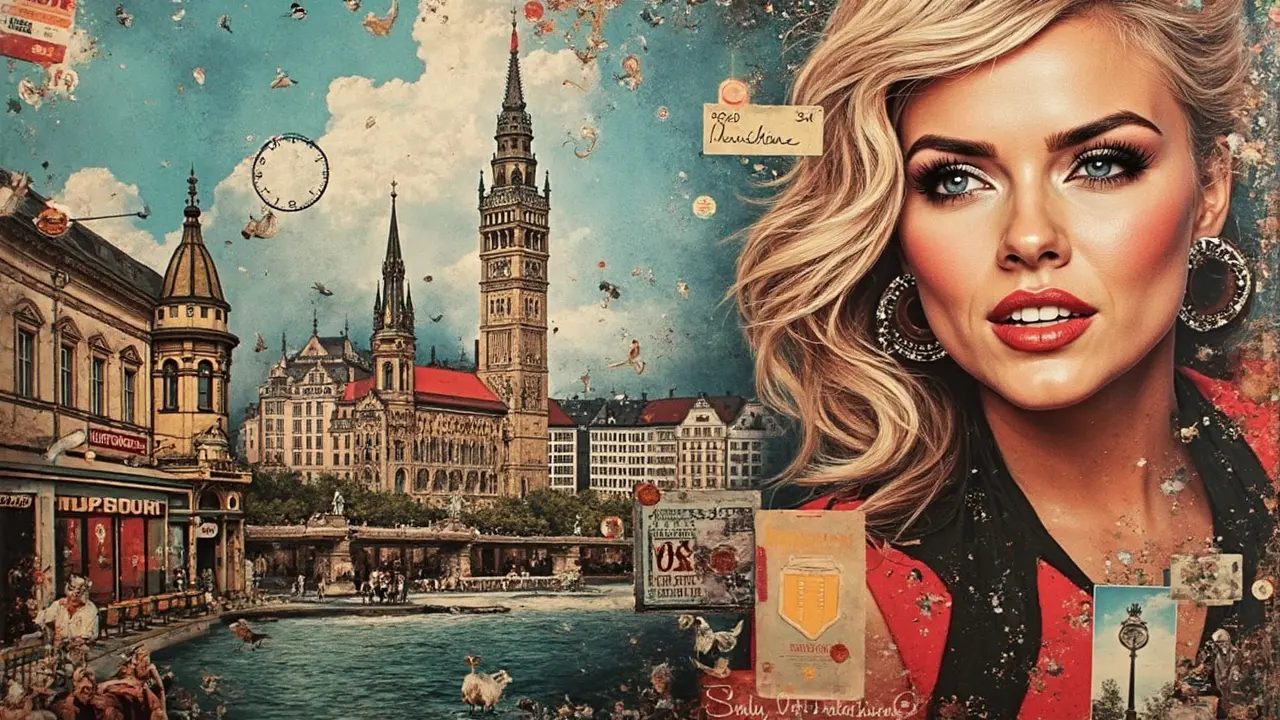
The Lasting Impact on Pop Culture
When people talk about lasting fame, most names fade quickly. Leonie Saint managed to stay relevant not just because she was famous in the adult film world but because she broke into mainstream conversations and even TV. She became a presenter on the German music channel VIVA, which usually didn’t give airtime to people from her background. This was a big deal, especially in the mid-2000s, when crossover success from adult to mainstream media was rare in Germany.
What made her different? Leonie’s public appearances were smart and upbeat. She owned her story instead of running from it. She openly talked about why she left adult films and why she tried other things. This honesty set a new standard in German pop culture, where folks often sidestepped past careers. Fans appreciated that she was open about her decisions and didn’t act like her past was some sort of secret.
You'll even see her name pop up in pop culture debates and as reference material in think pieces about empowerment in German media. Many TV shows and podcasts have touched on her transparent attitude and how it helped lower barriers for future performers in all industries. She didn’t just ride a wave—she changed its direction.
When you’re looking at pop culture in Munich, Leonie’s influence shows up in a few places:
- She helped start discussions about the adult industry without shame or stigma.
- Local media outlets became a bit more open to discussing controversial topics, thanks in part to her straight talk.
- Young artists and influencers mention her as an example of how to own your narrative, no matter what field you start in.
Even now, when people search about Leonie Saint, they’re not just looking for nostalgia. They want to understand how someone can shake up culture just by being real—and that’s a lesson that sticks around beyond any headline.
Practical Tips: Exploring Munich Like a Local
Tons of tourists stick to the big sights and leave wondering what all the hype is about. But if you want that real Munich vibe, you’ve got to do what the locals actually do—and skip the typical tour bus stuff whenever you can. Let’s get into some solid tips that’ll make you blend right in.
Munich isn’t just about the Marienplatz or Hofbräuhaus. Locals love the neighborhoods—places like Schwabing, Glockenbachviertel, and Haidhausen. Schwabing is where artists and students hang out. You’ll find funky little bars, secondhand shops, and lots of street food. Glockenbachviertel is LGBTQ-friendly and always buzzing at night, while Haidhausen is more laid back, with snug cafés that spill out into the streets in summer.
You’ll find beer gardens everywhere, but don’t bother with the most famous ones—they’re crowded and full of tourists. Head to quieter spots like Biergarten am Chinesischen Turm in the English Garden (where you’ll still see families and locals), or Augustiner Keller, which focuses on the city’s oldest local brew. Bring cash since most beer gardens don’t take cards.
- Public transportation is crazy reliable. Download the MVV app for easy routes and schedules. A day pass (Tageskarte) usually costs under €10 and covers buses, trams, and the U-Bahn.
- Lunchtime is big: hit up Viktualienmarkt for fresh local snacks and cheap street eats. Stand at one of the wooden beer tables with your food like everyone else—no need to sit down.
- Craving a night out? König Maximilian I. Street in Maxvorstadt is packed with bars and funky restaurants, but try going early if you want a decent table. Clubs like Harry Klein or P1 are legit if you want to dance till sunrise, but remember, most Munich clubs still have a dress code. No sneakers, no gym shorts.
- Sunday shopping isn’t a thing—most stores close, so get what you need on Saturday. Sundays are perfect for picnics in the English Garden or a swim in the Isar river if the weather’s good.
Worried about standing out? Germans don’t small-talk much with strangers, so don’t panic if you get a quiet look at first. Pay attention to the crosswalk lights—jaywalking is a no-go in Munich and you’ll get serious side-eye if you ignore them.
| Item | Price (€) | Where Locals Go |
|---|---|---|
| Beer (0.5L at Biergarten) | 4-5 | Augustiner Keller |
| Day Pass (Public Transport) | ~8.80 | MVV App |
| Schnitzel Meal | 12-16 | Andechser am Dom |
| Club Cover (Harry Klein) | 8-15 | Harry Klein |
Long story short: if you skip the tourist traps and do Munich the local way, you’ll get why people actually love living here. You’re way more likely to leave with a good story—or a killer hangover—if you follow these tips.
Quick Facts and Trivia About Leonie Saint
If you've seen Leonie Saint pop up in headlines or movies, you probably already know she's not your average celebrity. Here are some facts and trivia that show how she’s broken the mold in her own way—especially with the Leonie Saint brand still turning heads in pop culture.
- Born in 1986 in Herne, Germany, she jumped into the adult entertainment scene at the age of 18—and instantly stood out for her openness, humor, and unique look.
- She became a top name in Germany in just a couple of years, scooping the Venus Award for Best Actress twice by 2006 and 2007. That’s pretty rare for anyone in the business.
- Leonie left the adult industry in 2008, way earlier than most stars with her level of fame. Her exit was all about wanting more privacy and a new start—something plenty of people still talk about.
- After saying goodbye to the camera, she didn’t just disappear. She moved into TV and even got regular gigs on German reality shows and as a presenter, proving her following was not just about her film career.
- Leonie is also known for speaking out about the downsides of her early fame, especially how the industry shapes people’s lives. She’s honest about her regrets and gives advice to others about keeping control of their own paths.
Want a quick rundown of her highlights? This table sums up some key data from her life and career:
| Fact | Details |
|---|---|
| Birth Year | 1986 |
| First Film Year | 2004 |
| Venus Awards Won | 2 (2006, 2007) |
| Industry Retirement | 2008 |
| Post-Adult Career | TV presenter, reality TV, media commentator |
Fans love to remind newcomers that Leonie once appeared in music videos, did wild photoshoots for German magazines, and often showed up at cool Munich clubs (even after she left films). She’s managed to stay relatable by being straight-up about her past rather than hiding it, which, honestly, is not something you see every day.

